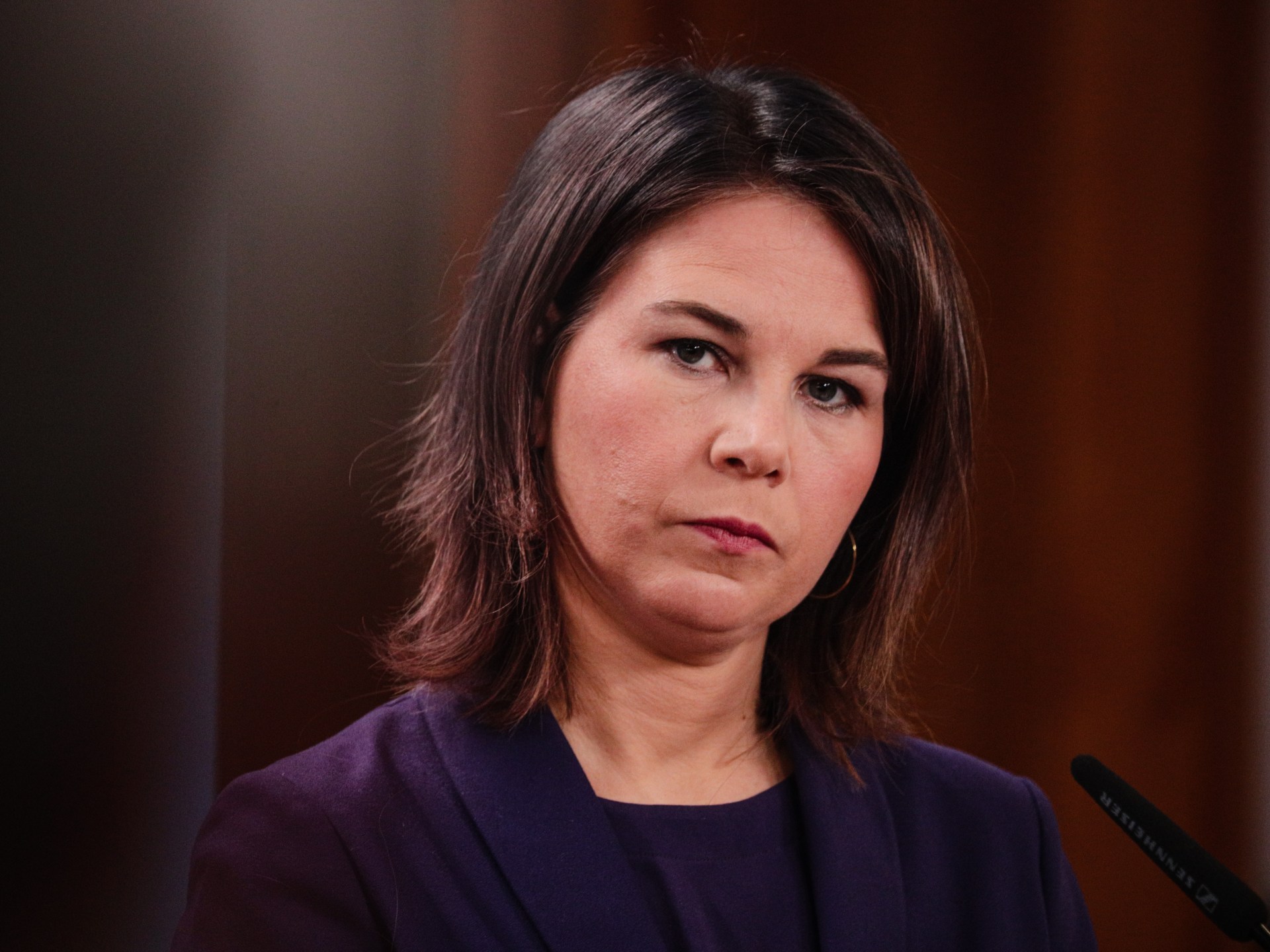German Foreign Minister Annalena Baerbock warned on Friday of Tunisia's retreat from its democratic foundations, while Tunisian President Kais Saied refused to "interfere in the internal affairs" of his country, after the Tunisian authorities arrested the head of the Ennahda movement, Rached Ghannouchi.
Baerbock told reporters that Berlin was "most concerned" about the arrest of the Ennahda chief, noting that the democratic achievements made in Tunisia since 2011 should not be lost.
The German minister noted that EU foreign ministers continue to monitor the situation closely, adding: "We convey our concerns to Tunisia."
"As Europeans, we do not want to leave the Tunisian people alone," Baerbock said, adding that Tunisia is facing a difficult situation at the economic and social levels, stressing that it is necessary to complete the aid program between Tunisia and the International Monetary Fund.
For his part, Tunisian President Kais Saied rejected – Thursday evening – "interference in the internal affairs" of his country, against the backdrop of international reactions about Ghannouchi's imprisonment.
"Blatant interference in our affairs is unacceptable, we are an independent and sovereign state that does not accept interference in our internal affairs, we are not a colonial state or under trusteeship," Saied said, according to a video posted by the Tunisian presidency on Facebook.
"A number of capitals have spoken of their discomfort, and the case is related to the call for civil war, and the law has been enforced by honorable judges," he said.
The Tunisian president pointed out that his country did not comment on "the arrests that took place in a number of countries, including European countries."
Last Monday, Tunisian security arrested Ghannouchi after raiding his home, before the Court of First Instance in Tunis ordered his imprisonment in the case of "statements attributed to him inciting against state security."
The movement denounced what it described as a very dangerous development, and demanded the immediate release of Ghannouchi and the cessation of what it described as the abuse of opposition political activists.
Last week, Ghannouchi said – in a speech during a meeting of the opposition Salvation Front – that "Tunisia without political Islam, Tunisia without the left or any other component, is a project for a civil war," adding that "those who celebrated the coup are exclusivists and terrorists, and they are advocates of civil war."
The European Union expressed its "grave concern" about developments in Tunisia following Ghannouchi's prison sentence, while Washington considered this a "worrying escalation by the government against those perceived by its opponents."
The U.S. State Department also expressed concern that the Tunisian government was arresting Ghannouchi, closing Ennahda's headquarters, and banning some opposition groups.
Since February 11, the Tunisian authorities have carried out a campaign of arrests that included leaders and activists in the opposition, which considers the exceptional measures "a coup against the constitution of the revolution (the 2014 constitution) and the consecration of absolute individual rule," while another group sees it as a "correction of the course of the 2011 revolution," which overthrew then-President Zine El Abidine Ben Ali (1987-2011).
Ennahda and the rest of the opposition forces usually deny the accusations against their leaders and consider them political prosecutions, while Saied accused detainees of "conspiring against state security and standing behind the crises of distribution of goods and high prices."
Saied, who began a five-year presidential term in 2019, ignores opposition calls for early presidential elections, saying his measures are "necessary and legal" to save the state "from total collapse."

